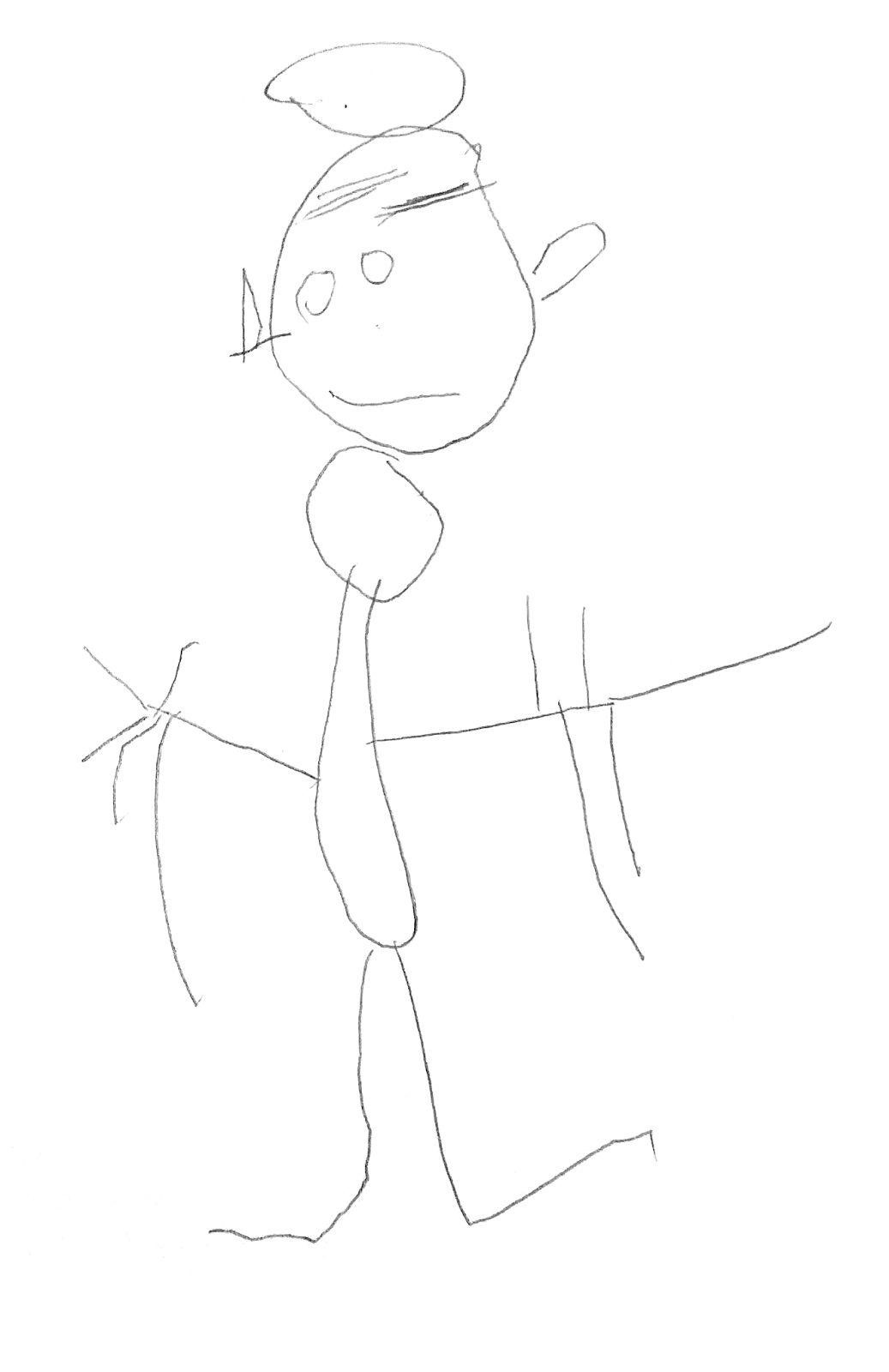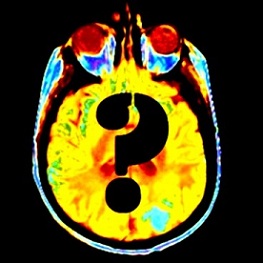|
Kategorie
|
-
-
-
 Psychologon / Psychologon
Pejsek má dlouhé uši a já ti řeknu, jakou máš náladu.... aneb kresba – královská cesta do dětské duše?
Tenká čára = nízké sebevědomí, velká hlava na obrázku odhalí deprese, výrazné řasy a obočí značí homosexualitu, bezruké postavy indikují pocit viny, malé uši poukazují, snížený intelekt, … Výše zmíněné autentické citace, ale i spousta obdobných zaplavuje v současné době weby o výchově, rodičovské diskuze a časopisy pro ženy. Jaká je ale realita diagnostiky pomocí dětské kresby, co skutečně se dá indikovat v laické rovině? V jaké míře se lze spolehnout na tuto diagnostickou metodu? Snahou následujících řádků je přinést stručný náhled na problematiku a úskalí neodborného výkladu. Psychologon / Psychologon
Pejsek má dlouhé uši a já ti řeknu, jakou máš náladu.... aneb kresba – královská cesta do dětské duše?
Tenká čára = nízké sebevědomí, velká hlava na obrázku odhalí deprese, výrazné řasy a obočí značí homosexualitu, bezruké postavy indikují pocit viny, malé uši poukazují, snížený intelekt, … Výše zmíněné autentické citace, ale i spousta obdobných zaplavuje v současné době weby o výchově, rodičovské diskuze a časopisy pro ženy. Jaká je ale realita diagnostiky pomocí dětské kresby, co skutečně se dá indikovat v laické rovině? V jaké míře se lze spolehnout na tuto diagnostickou metodu? Snahou následujících řádků je přinést stručný náhled na problematiku a úskalí neodborného výkladu.
Kateřina Skalická / 19. 6. 2016
-
-
-
 Psychologon / Rešerše
Max Little: A test for Parkinson's with a phone call
Parkinson’s disease affects 6.3 million people worldwide, causing weakness and tremors, but there's no objective way to detect it early on. Yet. Applied mathematician and TED Fellow Max Little is testing a simple, cheap tool that in trials is able to detect Parkinson's with 99 percent accuracy — in a 30-second phone call. Psychologon / Rešerše
Max Little: A test for Parkinson's with a phone call
Parkinson’s disease affects 6.3 million people worldwide, causing weakness and tremors, but there's no objective way to detect it early on. Yet. Applied mathematician and TED Fellow Max Little is testing a simple, cheap tool that in trials is able to detect Parkinson's with 99 percent accuracy — in a 30-second phone call.
www.ted.com / 12. 6. 2016
-
-
-
 Psychologon / Rešerše
Ryby rozeznají lidské tváře
My, co věříme v evoluci, jsme vlastně také rybami. Jen jsme kdysi vylezli na souš a už si to, jako třeba velryby a delfíni, znovu nerozmysleli. Když se to tak vezme, tak zjištění, že ti ve vodě dovedou číst v tvářích těch na suchu, zase až takovým překvapením není. A nebo je? Psychologon / Rešerše
Ryby rozeznají lidské tváře
My, co věříme v evoluci, jsme vlastně také rybami. Jen jsme kdysi vylezli na souš a už si to, jako třeba velryby a delfíni, znovu nerozmysleli. Když se to tak vezme, tak zjištění, že ti ve vodě dovedou číst v tvářích těch na suchu, zase až takovým překvapením není. A nebo je?
www.osel.cz / 10. 6. 2016
-
-
-
 Psychologon / Psychologon
Cognitive Neuroscience of Social Behavior
Explanations of social behavior widely vary depending on the point of view of given field. The current article reveals how cognitive neuroscience could help us understand social behavior of humans. The functional magnetic resonance imaging (fMRI) was used in numerous studies to see which parts of the brain are active during social behavior. Social cooperation is based on the ability to sacrifice one´s current resources in order to gain in the future and research shows that it is related to tissues linked to rewarding behavior. Therefore, it is hypothesized that cooperative behavior is labeled as rewarding which allows us to overcome our selfish impulses. Research also suggests that our decisions are influenced by both, emotions and cognition and that socially induced pain is similar to a physical pain. Psychologon / Psychologon
Cognitive Neuroscience of Social Behavior
Explanations of social behavior widely vary depending on the point of view of given field. The current article reveals how cognitive neuroscience could help us understand social behavior of humans. The functional magnetic resonance imaging (fMRI) was used in numerous studies to see which parts of the brain are active during social behavior. Social cooperation is based on the ability to sacrifice one´s current resources in order to gain in the future and research shows that it is related to tissues linked to rewarding behavior. Therefore, it is hypothesized that cooperative behavior is labeled as rewarding which allows us to overcome our selfish impulses. Research also suggests that our decisions are influenced by both, emotions and cognition and that socially induced pain is similar to a physical pain.
Monika Kupcová / 2. 6. 2016
-
-
-
 Psychologon / Rešerše
The people who cannot imagine
Close your eyes and visualise the face of the person you love the most. The colour of their eyes, the texture of their hair, the detail of their skin. Can you imagine it? Philip can’t. Psychologon / Rešerše
The people who cannot imagine
Close your eyes and visualise the face of the person you love the most. The colour of their eyes, the texture of their hair, the detail of their skin. Can you imagine it? Philip can’t.
BBC / 1. 6. 2016
-
-
-
 Psychologon / Rešerše
Taylor: My stroke of insight
An astonishing story of Jill Bolte Taylor who got a research opportunity few brain scientists would wish for: She had a massive stroke, and watched as her brain functions — motion, speech, self-awareness — shut down one by one. Psychologon / Rešerše
Taylor: My stroke of insight
An astonishing story of Jill Bolte Taylor who got a research opportunity few brain scientists would wish for: She had a massive stroke, and watched as her brain functions — motion, speech, self-awareness — shut down one by one.
www.ted.com / 1. 6. 2016
-
-
-
 Psychologon / Rešerše
Mariano Sigman: Your words may predict your future mental health
Can the way you speak and write today predict your future mental state, even the onset of psychosis? In this fascinating talk, neuroscientist Mariano Sigman reflects on ancient Greece and the origins of introspection to investigate how our words hint at our inner lives and details a word-mapping algorithm that could predict the development of schizophrenia. "We may be seeing in the future a very different form of mental health," Sigman says, "based on objective, quantitative and automated analysis of the words we write, of the words we say." Psychologon / Rešerše
Mariano Sigman: Your words may predict your future mental health
Can the way you speak and write today predict your future mental state, even the onset of psychosis? In this fascinating talk, neuroscientist Mariano Sigman reflects on ancient Greece and the origins of introspection to investigate how our words hint at our inner lives and details a word-mapping algorithm that could predict the development of schizophrenia. "We may be seeing in the future a very different form of mental health," Sigman says, "based on objective, quantitative and automated analysis of the words we write, of the words we say."
www.ted.com / 1. 6. 2016
-
-
-
 Psychologon / Rešerše
Kang Lee: Can you really tell if a kid is lying?
Are children poor liars? Do you think you can easily detect their lies? Developmental researcher Kang Lee studies what happens physiologically to children when they lie. They do it a lot, starting as young as two years old, and they're actually really good at it. Lee explains why we should celebrate when kids start to lie and presents new lie-detection technology that could someday reveal our hidden emotions. Psychologon / Rešerše
Kang Lee: Can you really tell if a kid is lying?
Are children poor liars? Do you think you can easily detect their lies? Developmental researcher Kang Lee studies what happens physiologically to children when they lie. They do it a lot, starting as young as two years old, and they're actually really good at it. Lee explains why we should celebrate when kids start to lie and presents new lie-detection technology that could someday reveal our hidden emotions.
www.ted.com / 15. 5. 2016
|
|